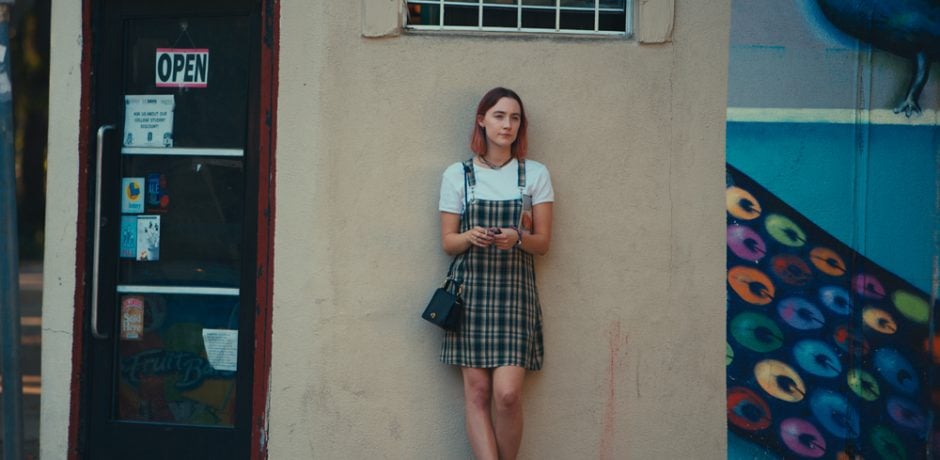
Leaving home and everything you grew up knowing is a transition we all face at some point. Home is a comfort blanket, no matter how grubby, or perhaps the wrong colour, or not the right fit. But to fold it up and put it in a draw, for safe keeping, and buying a new, fresh looking blanket is a natural transition with a bitter-sweet feeling. Ladybird is this story. Told from the perspective of young ‘Ladybird’, the film is an honest and raw telling of a young girl, ending one part of her life, to begin a new journey.
Christine, or rather, ‘Ladybird’ – a name given “to me by me” – represents herself with no pressures of conformity. She tells it like it is and doesn’t give a damn about the consequences. While she can be thoughtless at times, particularly towards her mother, she has a bold, audacious spirit which is inspiring and refreshing to see. Her strong-willed creative individuality is endearing. She is the kind of heroine I’d like to see in the next Disney film.
‘Ladybird’s’ story is familiar to every young person. The tensions with her parents, the fallouts with her friends, and the imperfect love stories come in moments we can all relate to. But personally, I connected most to her frustration with the world, and, fundamentally, with herself. Often as a young person one can have the tendency to blame ‘everyone’ for the hardship that is life. And it was funny watching a kind of mirror reflection of myself at times where I became embarrassingly aware of my own stubbornness when I too was a late teen. Sorry, Mum and Dad.
Ultimately, it is a story about humanity; the inevitability of growing up and the tapestry of complications that come with it. What is so unique about Ladybird, however, is that its director, Greta Gerwig, allows for things to be talked about which are usually muted. It is this raw honesty which is why I think a lot of young girls will be able to associate with ‘Ladybird’; acne scars and all. In a stand-out scene, ‘Ladybird’ and her boyfriend have sex for the first time, and – to put it bluntly – it’s a bit shit. Let’s face it, something we can all relate to.
The cinematic language writes the film with the same honesty as the narrative it is telling. The colour pallet that fill the costumes and set only enhances its ‘rough around the edges’ narrative theme. Muted colour tones engulf the screen’s aesthetic; it wouldn’t feel right if ‘Ladybird’ were to go to prom in a bright aqua blue gown.
Matching the rest of the film’s tone, the mother-daughter relationship presented is most candid. We all love our mothers just as much as they do our bloody heads in at times and, although I am yet a mother myself, my only guess is that the feeling is very much mutual. But often the little squabbles and arguments dissipate just as quickly as they bubble up. One scene which reflected this sincerity was where ‘Ladybird’ and her mum (Laurie Metcalf) shop for dresses, only ceasing another one of their squabbles when they find the perfect prom dress. Moments such as this left me both laughing and cringing; not only for the occasional harshness of ‘Ladybird’s’ tongue, but the level of similarity I too could see between me and my own mum. Again, sorry Mum.
The emotion from the film, its storyline, the cinematic language, and how the characters tell it, doesn’t just produce an audience, but a spectator. We become a part of ‘Ladybird’s’ world just as much as the strays that are strung along through her journey.
What leaves an ambivalent taste in our mouths, however, is the lack of cathartic release by the film’s end. This is not to say the film leaves you dissatisfied; it ties itself up beautifully, in fact. But, there is the looming inevitable awareness that Ladybird‘s end is simultaneously ‘Ladybird’s beginning.
Filed under: Film, TV & Tech
Tagged with: comedy, film, Greta Gerwig, HOME, Ladybird, manchester, Saorise Ronan



Comments